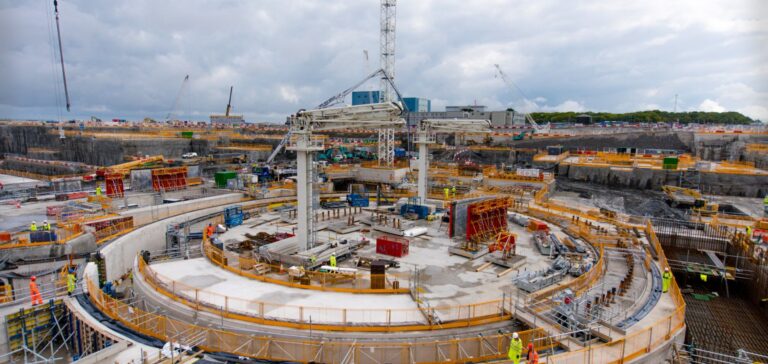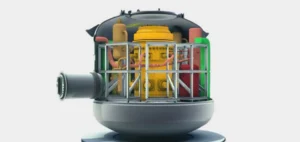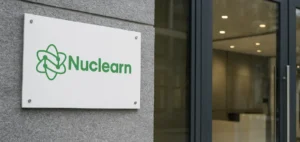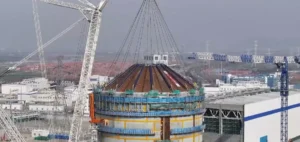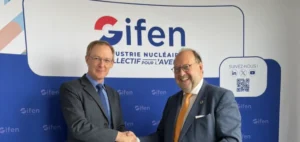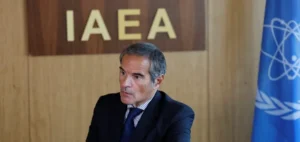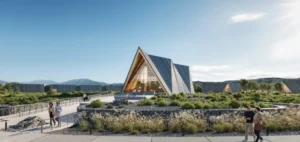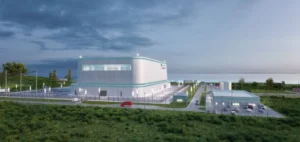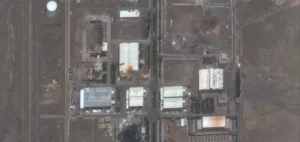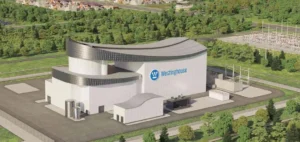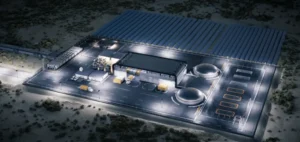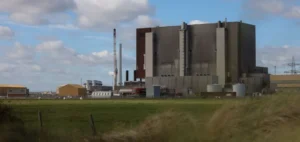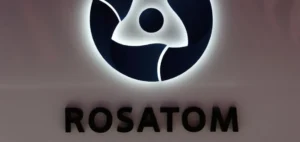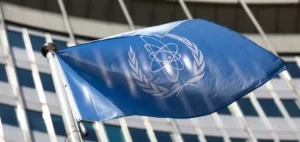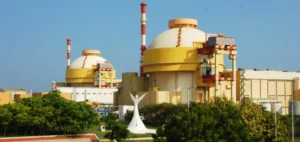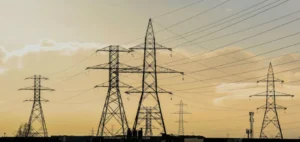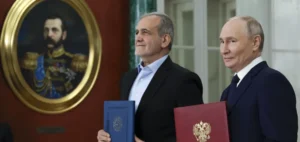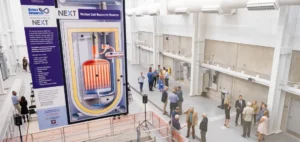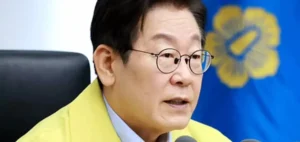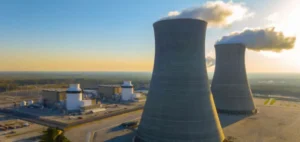The construction of nuclear reactors in the United Kingdom at Hinkley Point allows EDF to enter an “industrial pace” and should avoid the pitfalls encountered on the site of Flamanville during the construction of future French nuclear power plants, said Thursday the CEO of EDF Luc Rémont.
Avoiding the setbacks of Flamanville
“It’s really one of the fundamental aspects of any industrial sector: the more you do, the better you are,” Rémont told a few reporters during a visit to the British yard with Energy Transition Minister Agnès Pannier-Runacher and her British counterpart Grant Shapps. “There, we have entered a phase of industrial rate of which Hinkley Point is the start because it is the first time that we make two (EPR) at once,” he said. “When we go from Hinkley Point to Sizewell (another EPR project carried by EDF in the United Kingdom), we will repeat the same gestures and when we go to the EPR 2 (optimized version of the EPR), we will also go directly to a series by repeating the same gestures”, he argued.
Mr. Rémont hopes to avoid a repetition of the setbacks encountered on the Flamanville EPR project, which is already 12 years behind schedule and whose initial budget has been multiplied by four, while France wishes to revive nuclear power with at least six EPRs to be built. “This site is very different from our experience in Flamanville,” he said. “In Flamanville, we were building our first reactor in France, a long, long time ago (…). Here, we are building two in one go, after the experience of Taishan in China, Olkiluoto in Finland and Flamanville, and with feedback from all these sites,” he said. The CEO of EDF also mentioned the digitization of the site “which allows us to know exactly what each person has to do at any given time and to take this into account in our work programming”.
The Hinkley Point site remains imperfect
However, the Hinkley Point project has also experienced several setbacks: the latest was on 19 May 2022, when EDF announced a new minimum delay of one year and additional costs of at least 3 billion pounds, with the first unit now scheduled to be commissioned in June 2027, instead of late 2025. Questioned about possible new hazards, the CEO of EDF assured that “all the teams are tense to keep” the target schedule.
Regarding the concerns expressed at the outset, particularly by the unions, about EDF taking on most of the financial risk of Hinkley Point, Mr. Rémont said that this project now allowed “a long-term vision” to be supported. Without it, the French industrial sector “would not be in a position to embark on the sequence (…) necessary for the sustainability of the electricity supply” with the construction of at least six EPR2.


